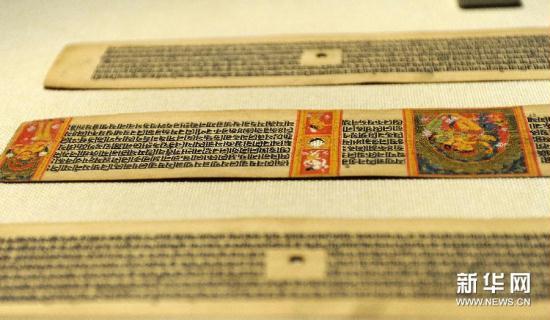 Since 2006, the Chinese Academy of Social Sciences, the China Tibetology Research Center and the government of the Tibet Autonomous Region have joined hands to protect pattra-leaf scriptures.
Since 2006, the Chinese Academy of Social Sciences, the China Tibetology Research Center and the government of the Tibet Autonomous Region have joined hands to protect pattra-leaf scriptures.
Originally from ancient India, pattra-leaf scriptures are sutras written on the leaves of plants. And with a history of over 2,000 years, the sutras are valuable to the research of Buddhism.
Most ancient pattra-leaf sutra manuscripts came from India between the 8th and 14th centuries.
These scriptures have been a key part of exchanges between ancient India and traditional Tibetan culture.
Among the Sanskrit pattra-leaf scriptures preserved in Tibet, many are unique and rare copies.
Since 2006, the Chinese Academy of Social Sciences, the China Tibetology Research Center and the government of the Tibet Autonomous Region have joined hands to protect pattra-leaf scriptures.
Now, an institute dedicated to preserving and studying the sutras has been set up.
"Pattra-leaf sutras have a long history. And as a cultural heritage they have great potential, because there are so many mysteries to be solved. I think the institute will greatly help us with our studies of early Tibetan culture and the history of Buddhism," said Tsewang Gyurme, researcher at Pattra-Leaf Sutra Preservation Institute.
Most pattra-leaf scriptures in Tibet are Buddhist sutras, while some manuscripts are written in Sanskrit.
From poetry and literature, to astronomy and civil codes, the scripts are invaluable for understanding the development of Buddhism, as well cultural exchanges between China and foreign countries.
In order to keep the original scripts intact, researchers have put together several catalogues and archives by photocopying over 6,000 manuscripts.
In this way, experts can consult the archives without putting the original scripts at risk.
The Pattra-leaf Sutra Preservation Institute is planning to arrange academic exchange programs with those in other countries, a move to share the mysteries of the pattra leaf writings.
